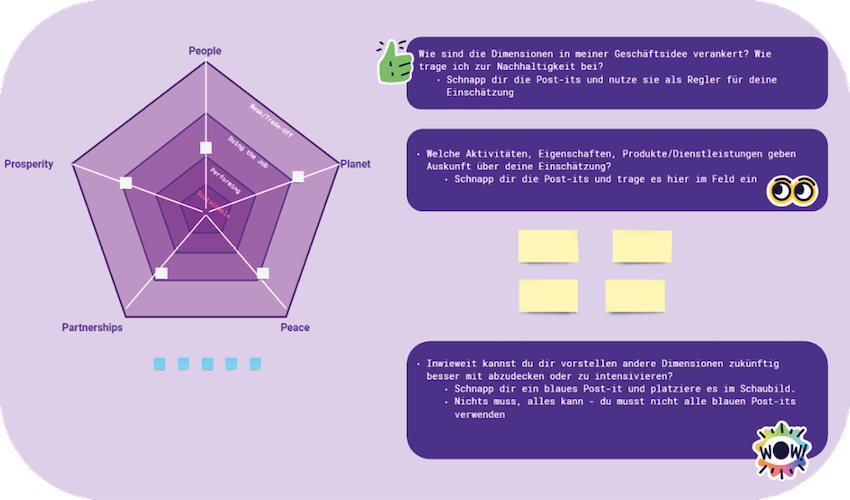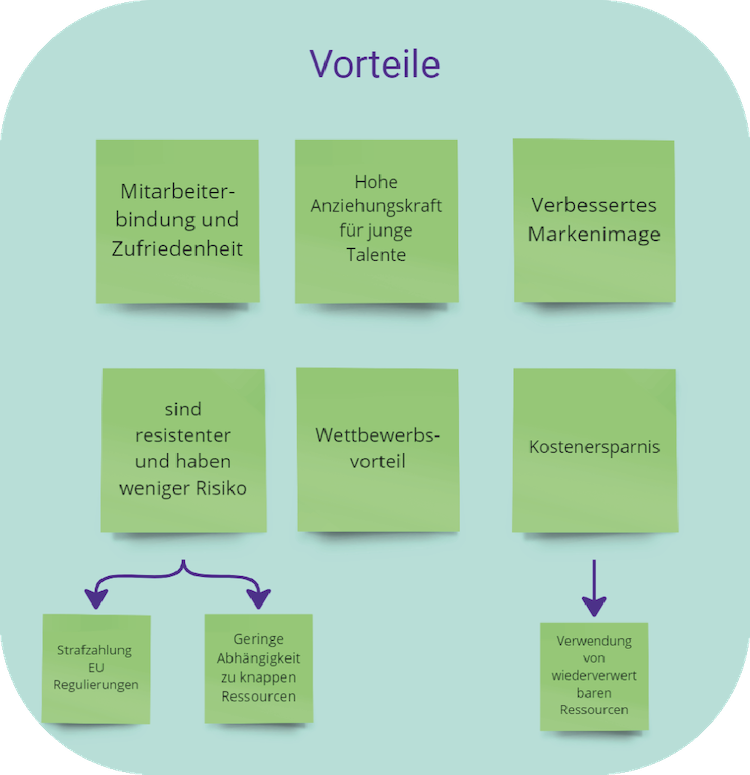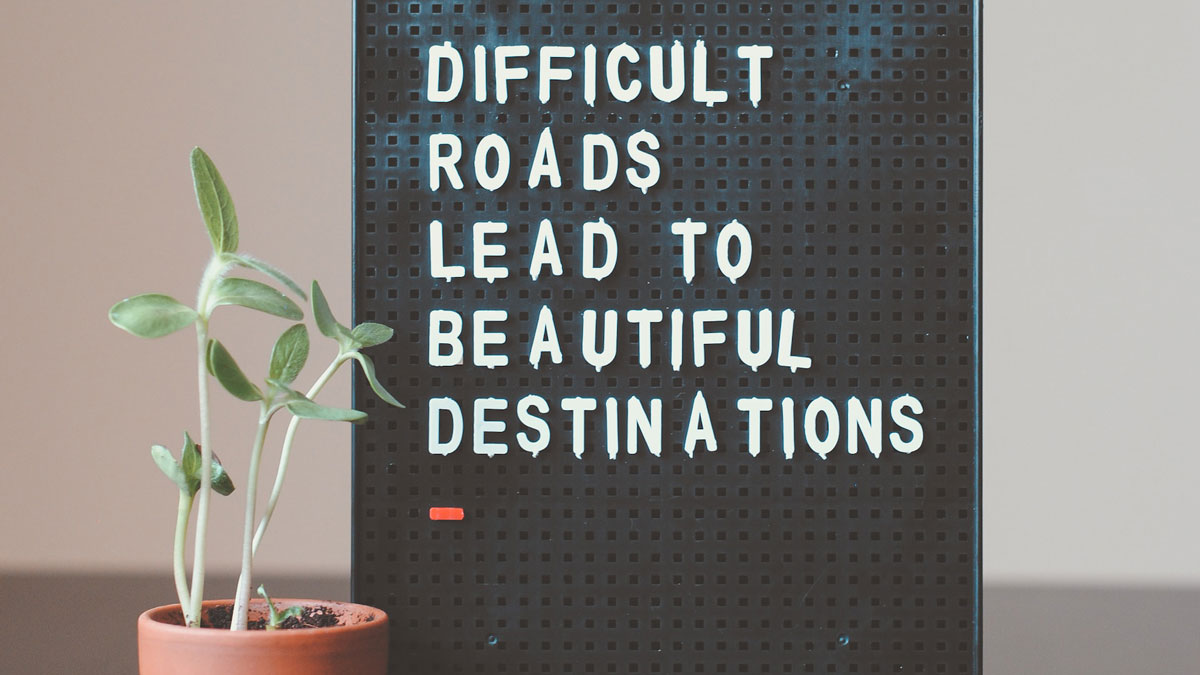Start-ups are the protagonists of a new era of sustainability. They are driving change through innovative technologies, creative ideas and forward-thinking. Their commitment to the sustainable use of resources and their holistic approach make them pioneers of the future. In this blog post, we take a look at "Sustainable Business" and look at start-ups that are encouraging us to achieve what others think is impossible - a world of sustainable business. Together we can do it!
I. The importance of sustainability for start-ups
Sustainability is not just a trend, but a necessity for companies in today's world. Startups have a unique opportunity to implement sustainable principles from the beginning and achieve long-term success. Sustainable business practices not only help to protect the environment, but can also strengthen customer loyalty and open up new business opportunities. By focussing on environmental and social sustainability, startups can have a positive impact on society while achieving long-term commercial success.
II Impact of start-ups on sustainability
Startups can have a significant impact on global sustainability, particularly in the environmental, social and economic areas. Through innovative solutions and business models, they can help to conserve resources, protect the environment and tackle social problems. Impact startups and social startups are examples of companies that specifically develop sustainable solutions to have a positive impact on society and the environment. By utilising technology and new business models, startups can make a significant contribution to achieving sustainability goals.
III The 5 Ps of sustainable business
The 5 Ps (Piece, People, Planet, Partnership, Prosperity) are a useful framework for analysing how a startup influences the various dimensions within the organisation and the impact on the outside world. Peace is the most far-reaching dimension of the 5 Ps. It refers to a startup's contribution to conflict resolution and social stability. People deals with the impact on society and employees. The clearest dimension is Planet. It focuses on the environmental impact of a startup. Partnership refers to collaboration with other companies and organisations to achieve common goals. Prosperity relates to economic success and job creation. By taking the 5 Ps into account, startups can develop a holistic and comprehensive sustainability strategy. It is important that founders understand that they always have an impact on the 5 Ps.
Simona Costanzo Sow from the United Nations System Staff College explained in our workshop for sustainable start-ups that everyone has an impact on the five dimensions. Even people who think nothing of sustainability have an impact through their actions on these levels. Regular reflection on a personal and team level helps founders to create a strong awareness of sustainable action and thus also to create a stronger bond between team members and between individual employees to the vision of a social or impact startup.
Here you can see a task from our last workshop that can help founders approach the topic of sustainability:

IV. Sustainable business models for start-ups
There are various approaches and business models that start-ups can pursue in order to build sustainable companies. One approach is the circular economy, where products and materials are recycled and reused. Another approach is the use of renewable energy and the reduction of energy consumption. Here we have added a list of other business models that you can integrate into your own business model:
- Cradle-to-cradle design: Companies such as Desso rely on cradle-to-cradle design, in which products are designed from the outset in such a way that they can be fully returned to the biological or technical cycle at the end of their service life.
- Sharing Economy: The sharing economy is booming. Companies such as Airbnb and car-sharing platforms such as Miles enable people to share resources and thus protect the environment.
- Upcycling: In contrast to recycling, in which waste products are processed into new materials, upcycling involves reprocessing old materials so that they shine in new splendour. One example of this is the company Airpaq, which produces bags and accessories from old airbags.
- Organic farming: Companies such as Demeter or Bioland rely on organic farming, which does not use pesticides or chemical fertilisers and therefore protects the environment.
- Circular Economy: The circular economy strives for an economy in which resources are utilised efficiently and sustainably. Companies such as Philips offer business customers the option of leasing complex lighting systems (pay per lux) instead of buying them.
- Green energy: Companies such as EnBW and Enpal rely on green energy from renewable sources such as wind and solar power to protect the environment and drive forward the energy transition.
- Sustainable packaging: Styrofoam is one of the most widely used packaging materials. However, this material is anything but compatible with the environment. Styrofoam is not biodegradable. In theory, it is assumed that it takes 6,000 years for polystyrene to decompose. In addition, it takes around 1.5 litres of petrol to produce a single cube of polystyrene. The Swiss start-up Mycrobez, for example, is working on a mycelium composite that is suitable for sustainable packaging. A process for the mass production of this innovative packaging solution is currently being developed so that mushrooms can replace polystyrene in the future.
- Fair trade: Companies such as Tony's Chocolonely are committed to fair trade and offer products that have been produced and traded under fair conditions and therefore also benefit the producers.
- Climate-neutral company: Companies such as myclimate are committed to climate neutrality and offset their CO2 emissions by investing in climate protection projects.
Startups can also tackle social problems by developing solutions for education, healthcare or poverty reduction. By combining profitable business models with a positive social and environmental impact, startups can create a win-win situation. I recommend outlining many different models and exchanging ideas with people to discover new ideas and creative alternatives, especially at the very beginning of the start-up phase. However, this recommendation should not deter existing start-ups from asking themselves how they can adapt their current model.
To help you get started, we have formulated 9 questions for founders:

V. Success factors for sustainable start-ups
In order to successfully build sustainable start-ups, there are certain success factors that should be taken into account. A clear vision and mission centred on sustainability is crucial. It is also important to build a strong network and partnerships to leverage resources and expertise. A strong corporate culture that promotes sustainability can also help motivate employees and appeal to customers. In addition, it is important to be flexible and responsive to changing circumstances and market conditions. By taking these success factors into account, startups can drive change and build a sustainable future.
VI Challenges for sustainable start-ups
Although sustainable start-ups have a lot of potential, they also face challenges. One is finding the balance between sustainability and profitability. Startups often have to invest in the development of sustainable technologies and solutions, which can lead to higher costs. It can also be difficult to convince customers of sustainable products and services, especially if they have higher prices. In addition, regulatory hurdles and uncertainties can hinder the success of sustainable startups. However, by identifying and overcoming these challenges, startups can achieve long-term success.
VII Support for sustainable start-ups
There are various support options for promoting sustainable start-ups. Governments and authorities can provide incentives and support programmes for sustainable companies. Investors and venture capitalists can provide financial support for sustainable start-ups.
How the financing of your start-up is organised, whether through your own saved pocket money or through important investors, has a direct impact on the sustainable management of your company. There are various sustainable financing options for your start-up or growth capital, such as crowdfunding, crowd investing or impact investing via impact-oriented venture capital funds such as Planet A. With crowdfunding, many people invest online by paying small or large amounts into sustainable projects, which enables the company to grow organically. Through crowdfunding, for example, you can easily realise your first product line through pre-financing from the crowd and obtain direct and uncomplicated feedback from potential or future customers. One platform for sustainable crowdfunding is Startnext, for example.
Econeers is an example of a platform that offers crowdinvesting for sustainable projects. The platform brokers investments in renewable energy, energy efficiency and other ecological projects and companies. Small investors have the opportunity to invest digitally and free of charge from as little as 250 euros and benefit from the economic potential of this green investment.
The GLS Crowd offers another opportunity for sustainable growth financing. It brings together founders with forward-looking ideas and people who want to use their funds for socio-ecological projects. Investors can invest from as little as 250 euros in a variety of sustainable companies and projects that comply with GLS Bank's investment and financing principles.
In addition to financial support, incubators and accelerators offer mentoring, coaching and networks for start-ups. Furthermore, networks and communities of sustainable companies can promote the exchange of best practices and collaboration. One of the best-known networks is the Federal Association for Sustainable Business.
VIII. The role of customers in sustainable start-ups
Customers play an important role in promoting sustainable start-ups. Through their purchasing decisions, they can encourage companies to offer sustainable products and services. Customers can also actively seek out companies that share their values and principles. By supporting sustainable start-ups, they can have a positive impact on society and the environment. It is important that founders talk about their WHY first when marketing their products and services. In other words, they tell their customers why they founded their startup and what their goal is. The WHY paired with a strong sustainable positioning creates the necessary appeal to reach customers who believe in the startup and want to be part of the movement. If you would like to know more about WHY, we recommend the article "The secret to success: Why the WHY of an impact and social start-up is crucial" to read.
IX. Future prospects for sustainable start-ups
The future prospects for sustainable start-ups are promising. Given the increasing importance of sustainability in the business world, startups that develop sustainable solutions are likely to be successful. The demand for sustainable products and services is growing, and governments and public authorities are increasingly committed to environmental protection and social justice. By combining innovation, technology and social engagement, startups can shape a sustainable future and drive change. There are also other benefits for social and impact startups:

X. My conclusion
Sustainable startups have a unique opportunity to drive change and have a positive impact on society and the environment. Through innovative solutions, sustainable business models and social engagement, startups can achieve long-term success while contributing to solving global challenges. By incorporating sustainability into all aspects of business, startups can create a win-win situation that benefits both companies and society. It's time to consider sustainable business as a standard and drive the change towards a sustainable future.

